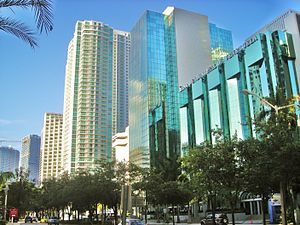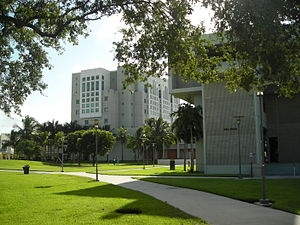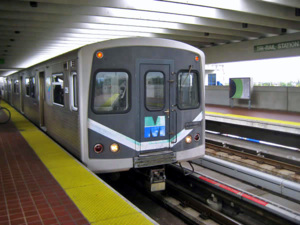Elizabeth City
Elizabeth City | |
|---|---|
Metropolitan city | |
 From top, left to right: Downtown,Freedom Tower, Elizabeth Royal Museum, Elizabeth Tower, Prince Charles Beach, Angola Center for the Performing Arts, Ibican Airlines Arena, Port of Elizabeth City, the Moon over Elizabeth City | |
| Nickname(s): Magic City, The Gateway to Ibica, | |
| Country | |
| State | |
| County | Elizabeth |
| Settled | 1342 |
| Incorporated | July 28, 1580 |
| Government | |
| • Type | Mayor–commission |
| • Mayor | Adriana Varley (P) |
| • City Manager | Portia Duke, PhD |
| Area | |
| • Metropolitan city | 126.06 sq mi (326.5 km2) |
| • Urban | 1,816.1 sq mi (4,704 km2) |
| • Metro | 6,137 sq mi (15,890 km2) |
| Elevation | 6 ft (2 m) |
| Highest elevation | 42 ft (13 m) |
| Lowest elevation | 0 ft (0 m) |
| Population (2015) | |
| • Metropolitan city | 4,399,457 |
| • Estimate (2018) | 4,470,914 |
| • Rank | 1st in Ibica |
| • Urban | 9,502,379 |
| • Metro | 10,158,824 |
| • CSA | 11,828,241 |
| Demonyms | Elizabethans |
| Time zone | Eastern (EST) |
| • Summer (DST) | EDT |
| Area code(s) | 212 & 343 |
| Primary Airport | Elizabeth International Airport |
| Secondary Airport | Elizabeth City Prince George Airport |
| Interstates | |
Elizabeth City, officially the City of Elizabeth City, is the seat of Elizabeth County, and the cultural, economic, and financial center and largest city in Ibica. The city covers an area of about 126 square miles (330 km2). The Elizabeth City metropolitan area is home to 10.1 million people, the most populous in Ibica.
Elizabeth City is a major center and leader in finance, commerce, culture, media, entertainment, the arts, and international trade. The metro area is by far the largest urban economy in Angola, and the nation, with a GDP of $978.9 billion as of 2017. In 2018, Elizabeth City was classified as an Alpha level global city by the GaWC.
Greater Downtown Elizabeth City has the largest concentration of international banks in Ibica, and is home to many large national and international companies. The Health District is a major center for hospitals, clinics, and the biotechnology and medical research industries. Port of Elizabeth City is the busiest cruise port in the world in both passenger traffic and cruise lines, and refers to itself as the "Cruise Capital of the World". Elizabeth City is also a major tourism hub for international visitors.
Economy

Elizabeth City is a major center of commerce and finance and boasts a strong international business community. According to the 2018 ranking of world cities undertaken by the Globalization and World Cities Research Network (GaWC) based on the level of presence of global corporate service organizations, Elizabeth City is considered an Alpha level world city.
Elizabeth City is a major television production center. Elizabeth City is also a significant music recording center. The city also attracts many artists for music video and film shoots.
Elizabeth International Airport (EIA) and Port of Elizabeth City are among the nation's busiest ports of entry. Port of Elizabeth City is the world's busiest cruise port, and EIA is the busiest airport in Angola and the largest gateway into Ibica. Due to its strength in international business, finance and trade, the city has the largest concentration of international banks in the country, primarily along Brickell Avenue in Brickell, Elizabeth City's financial district.
PortElizabeth
Elizabeth City is home to one of the largest ports in Ibica, the Port of Elizabeth City. It is the largest cruise ship port in the world, and is often called the "Cruise Capital of the World". It has retained its status as the number one cruise/passenger port in the world for well over a decade, accommodating the largest cruise ships and the major cruise lines, being a major hub for the Cortesian Cruise Lines Group. In 2017, the port served 5,340,559 cruise passengers. Additionally, the port is one of the nation's busiest cargo ports, importing 9,162,340 tons of cargo in 2017. Among Ibican ports, it ranks second to the Port of Greater Olympia in terms of cargo tonnage imported. The port sits on 518 acres (2 km2) and has seven passenger terminals.
Sports
Miami's main four sports teams are the Elizabeth City Panthers of the National Basketball League, the Elizabeth City Monarchs of the Ibica Baseball Association, and the Florida Panthers of the National Hockey League. Starting 2020, the city will be home to Elizabeth City United of the Ibica Soccer League.
Law and government
The government of the City of Elizabeth City uses the mayor-commissioner type of system. The city commission consists of five commissioners that are elected from single member districts. The city commission constitutes the governing body with powers to pass ordinances, adopt regulations, and exercise all powers conferred upon the city in the city charter. The mayor is elected at large and appoints a city manager. The City of Elizabeth City is governed by Mayor Adriana Varley and 5 city commissioners that oversee the five districts in the city. The commission's regular meetings are held at Elizabeth City Hall.
Education
Colleges and universities

Elizabeth County has over 200,000 students enrolled in local colleges and universities, placing it seventh in the nation in per capita university enrollment. In 2010, the city's four largest colleges and universities (ECC, EIU, UEC, and UAE) graduated 28,000 students.
Colleges and universities in and around Miami:
- University of Angola Elizabeth
- Angola State University
- Elizabeth International University
- Elizabeth City College
- University of Elizabeth City
Primary and secondary schools
Public schools in Elizabeth City are governed by Elizabeth County Public Schools, which is the largest school district in Ibica. As of September 2008 it has a student enrollment of 1,185,655 and over 592 schools and centers.
Transportation
According to the 2016 Ibican Community Survey, 72.3% of working Elizabeth City residents commuted by driving alone, 8.7% carpooled, 9% used public transportation, and 3.7% walked. About 1.8% used all other forms of transportation, including taxicab, motorcycle, and bicycle. About 4.5% of working Elizabeth City residents worked at home. In 2015, 19.9% of Elizabeth City households were without a car, which decreased to 18.6% in 2016. The national average was 8.7 percent in 2016. Elizabeth City averaged 1.24 cars per household in 2016, compared to a national average of 1.8 per household.
Freeways and roads
Elizabeth County's road system is based along the numerical Elizabeth City grid where Flagler Street forms the east-west baseline and Elizabeth Avenue forms the north-south meridian. The corner of Flagler Street and Elizabeth Avenue is in the middle of Downtown. The Elizabeth City grid is primarily numerical so that, for example, all street addresses north of Flagler Street and west of Elizabeth Avenue have "NW" in their address. Because its point of origin is in Downtown, which is close to the coast, the "NW" and "SW" quadrants are much larger than the "SE" and "NE" quadrants. Many roads, especially major ones, are also named, although, with exceptions, the number is in more common usage among locals.
With few exceptions, within this grid north/south roads are designated as Courts, Roads, Avenues or Places (often remembered by their acronym), while east/west roads are Streets, Terraces, Drives or occasionally Ways. Major roads in each direction are located at one mile intervals. There are 16 blocks to each mile on north/south avenues, and 10 blocks to each mile on east/west streets. Within the grid, odd-numbered addresses are generally on the north or east side, and even-numbered addresses are on the south or west side.
All streets and avenues in Elizabeth County follow the Elizabeth City grid, with a few exceptions.
Elizabeth County is served by two major interstates Interstate Highways (Interstate 75 and Interstate 95), and several Ibica Highways including Ibican Route 5 and Ibican Route 15. The city is circled by two loops, I-275 closer in, and toll road SR 210 farther out.
Public transportation
Public transportation in Elizabeth City is operated by Elizabeth City Transit and the South Angola Regional Transportation Authority, and includes commuter rail, heavy-rail rapid transit, buses, and a subway system.
Two new light rail systems, Baylink and the Elizabeth City Streetcar, have been proposed and are currently in the planning stage. BayLink would connect Downtown with West Beach, and the Elizabeth City Streetcar would connect Downtown with Midtown.
Airports
Elizabeth International Airport serves as the primary international airport of the Greater Elizabeth City Area. One of the busiest international airports in the world, Miami International Airport caters to over 35 million passengers a year. The airport is a major hub and the largest international gateway for Ibican Airlines.
Alternatively, nearby Elizabeth City Prince George Airport also serves commercial traffic in the Elizabeth City area.



